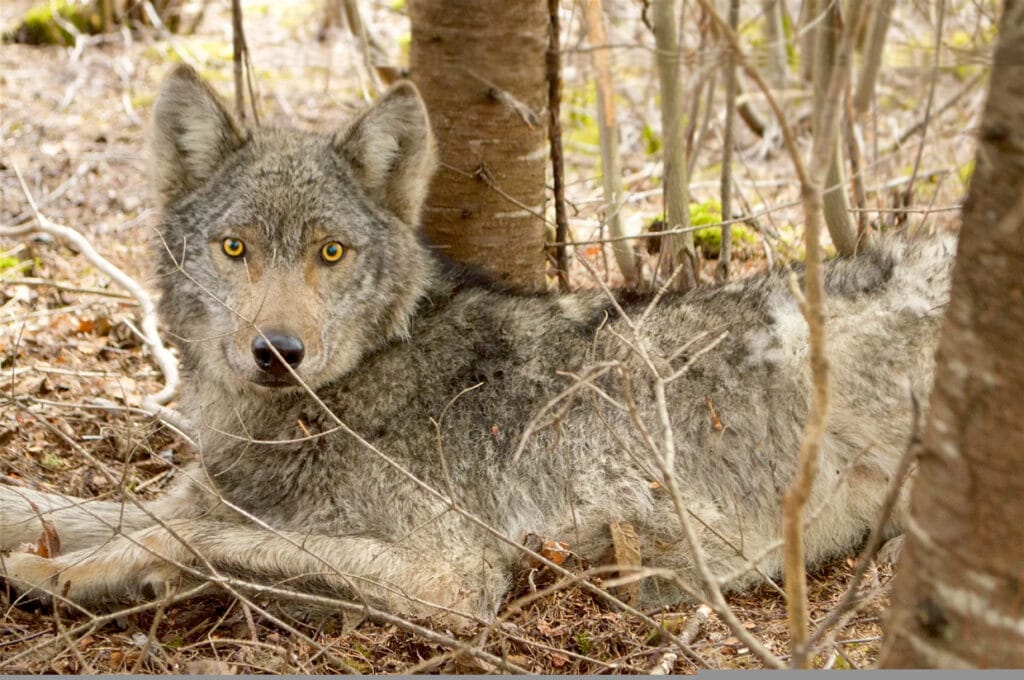
More than $60 million in funds generated by the Minnesota state lottery to pay for conservation and environmental science projects around the state are hanging in limbo at the state capitol. The chair of a key Senate committee has refused to hear legislation that would appropriate the money for fiscal year 2020.
The Environment and Natural Resources Trust Fund (ENRTF) is constitutionally required to be spent on environmental projects. It is critical for studies like the Voyageurs Wolf Project, which has uncovered significant new findings about wolf behavior in northern Minnesota.

“As stewards of the taxpayers it is financially prudent to allow that money to fall to the bottom line and be used next year when our state will most likely be facing a massive deficit,” wrote Senator Bill Ingebrigtsen, a Republican representing the Alexandria area, in a letter to his House counterpart in late April.
Since sending the letter, Ingebrigtsen made it clear in committee discussions that he is also objecting to spending the funds because Republicans have not been able to use them to pay for improvements to wastewater treatment facilities.
The issue of paying for wastewater treatment upgrades has come up repeatedly in recent years. While the upgrades would help protect clean water, it threatens to consume all the funding available.
It’s also simply not the intent of the funding, which was approved by voters in a 1988 referendum.
“That’s not what the citizens voted on when they voted on this,” Morse said. “It’s a bait-and-switch to have the constitutional amendment adopted for one set of purposes, and then change it to do what is really a core function of state government.”
Spending recommendations are made by a group of bipartisan legislators and citizens and passed along to the legislature. The lawmakers usually approve the proposals with little change.
In addition to the Voyageurs Wolf Project’s request for $575,000 to continue its work, other projects focused on northern Minnesota were tentatively approved by the LCCMR. They include another Voyageurs National Park project, studying the role of beavers in controlling floods and drought, a study of blue-green algae in the Boundary Waters ecosystem, invasive algae in North Shore rivers, and a Superior Hiking Trail project to bring problem parts of the trail up to standards for sustainable construction, and better manage water problems.
Communities that serve as gateways to popular public lands in northeastern Minnesota also have projects on the line. The town of Rainier, on Rainy Lake at the edge of Voyageurs National Park, is seeking funding to build a new safe harbor and dock, which would also allow the National Park Service to dock its large tour boat. On the eastern side of the park, the town of Crane Lake is awaiting $3.1 million for a new campground and National Park visitor center.
Former LCCMR commissioners published a commentary in the Star Tribune on Monday calling for the funding to be released — and for a return to transparent and nonpartisan action to approve the environmental spending. Jeff Broberg, John Hunt, Dennis Fredrickson, Mary Mueller, John Herman, Bonnie Harper-Lore, Al Berner and Tom Cook wrote that the wastewater treatment plant issue has become a “poison pill.”
“We must not allow a $1.5 wastewater controversy to take down the entire bill, especially when the governor has proposed more than $200 million in water infrastructure investments in the bonding bill — the traditional source of such funding,” the authors wrote.
This year’s legislative session is scheduled to end on May 18.
More information:
- Don’t let environmental funding fall prey to political games – Star Tribune
- Dispute over environmental fund leaves projects on wolves, weeds and mussels in limbo – MPR News
- 2020 Environment and Natural Resources Trust Fund Recommendations
- Minnesota Senate stonewalling may leave Environmental Trust Fund money on the table – Minnesota Environmental Partnership

